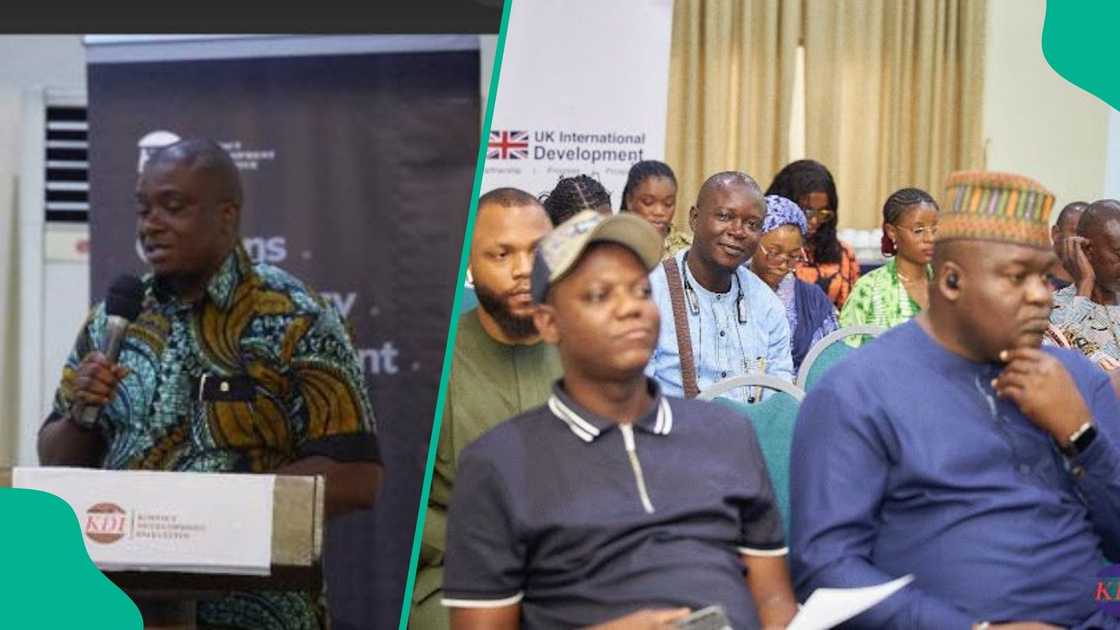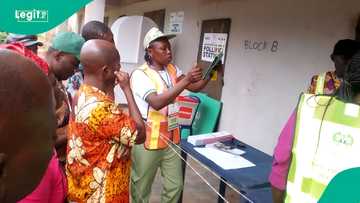Anambra 2025 Poll: Report Shows How APC, APGA Engaged in Massive Vote Trading Across All 326 Wards
- Kimpact Development Initiative (KDI) revealed widespread vote trading involving APC and APGA across all 326 wards
- Observers reported delays in polling unit operations that affected the start of voting
- Vote trading and structural weaknesses at polling units undermined ballot secrecy and electoral integrity
Anambra state - A post-election report by the Kimpact Development Initiative (KDI) has revealed that the 2025 Anambra State off-cycle governorship election was marred by widespread vote trading.
Specifically, the report implicated the All Progressives Congress (APC) and the All Progressives Grand Alliance (APGA), among other parties across all 326 wards.

Source: Original
Presenting the findings at a post-election press conference in Abuja, KDI described the conduct as a significant challenge to ballot secrecy and electoral integrity.
Anambra poll: Reports says structural weaknesses persisted
The report indicated that voter turnout rose to 21.34 per cent, a notable improvement from the 10.26 per cent recorded in the 2021 election. KDI noted that this increase reflected a growing citizen willingness to participate in the democratic process.
However, the report cautioned that despite higher participation, structural and procedural weaknesses continued to undermine the election. KDI stated,
“The election reflects a system that can deliver credible outcomes when its mechanisms function properly, but remains hindered by gaps in enforcement, training, coordination, and accountability.”
Polling unit delays affected voting start times
KDI’s Election Day Data Room analysis showed that although most INEC officials arrived on time, accreditation and voting commenced on average at 9:13 am, forty-three minutes later than the official 8:30 am start time.
Observers reported that ad-hoc staff often struggled to locate polling units, while security deployment delays further impeded timely voting.
The report explained,
“Strengthening logistical coordination, improving mapping for ad-hoc staff, and verifying materials at Registration Area Centres will reduce avoidable delays in future elections.”
Vote trading is widespread across wards
KDI highlighted that many polling units were structurally arranged in ways that compromised ballot secrecy, creating opportunities for vote trading.
Observers reported instances where voters openly displayed marked ballots to party agents in exchange for cash or small items.

Read also
2025 recruitment: CDCFIB releases 3 things applicants must do to scale through during the online test
The report noted,
“Vote trading was observed in multiple forms, ranging from the exchange of snacks and beverages to cash inducements. Reports came from all 326 wards, highlighting the pervasive nature of the challenge and its potential to distort electoral outcomes.”
KDI emphasised that these practices undermined voter autonomy and public confidence, adding that stricter enforcement of polling unit layouts and closer oversight by electoral officials and security personnel are critical.
While security personnel were present in most polling units, coverage varied across local government areas.
KDI documented one incident in Oyi LGA where no security officers were sighted well past the voting start time.
The report added that security enforcement was often inadequate, particularly in addressing vote buying, with officers sometimes observing violations without intervening.
KDI suggested that amendments to the Electoral Act could strengthen security agencies’ mandate to act promptly during elections.
Election-related violence remained mostly contained
KDI recorded 35 incidents of election-related violence across the state, including group clashes, voter intimidation, ballot box snatching, and one fatal shooting in Orumba South LGA.
Despite these incidents, the report stated that the broader election environment remained relatively calm.
Recommendations target INEC, security agencies, political parties, and voters
KDI’s report included comprehensive recommendations aimed at strengthening Nigeria’s electoral process.
It urged INEC to improve logistics, enforce polling unit layouts, and audit voter data; called on security agencies to adopt transparent deployment models and improve enforcement; and encouraged political parties to train agents on acceptable conduct.
The report also highlighted the role of civil society and communities in safeguarding ballot secrecy, warning that voter engagement must include rejection of practices that compromise free choice.
Source: Legit.ng




